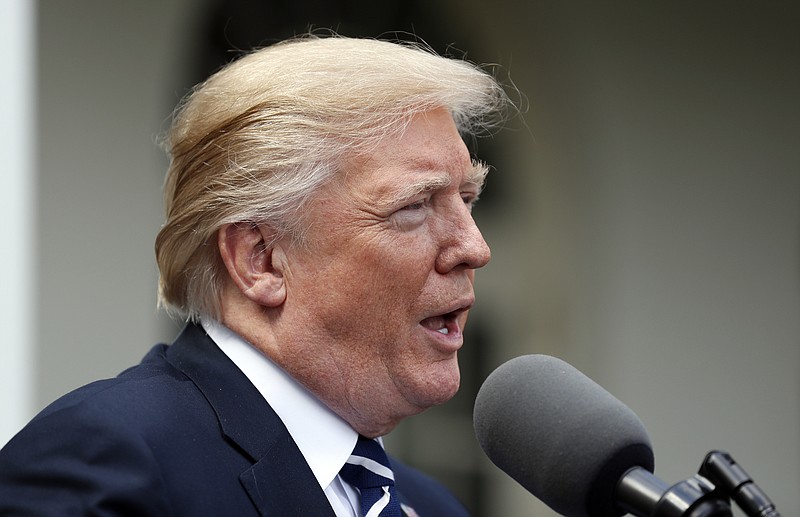America, we have a problem, an insidious one.
It's not Korea or Iran or opioids, although they are certainly significant issues.
It's unelected federal judges ruling not on the law but on politics. It's not a brand new phenomenon, but it is reaching new heights in the era - all 10 months - of Trump.
It happened again Monday. A federal judge barred the administration from completing plans to bar transgender people from military service.
Only a year ago, former President Barack Obama's Department of Defense decided that members of the military who desired to live as the gender they chose instead of the one they were born with did not have to be discharged based solely on their gender, and that transgender individuals could be admitted to the military beginning in June.
Before that, such individuals entered the service and lived under the Bill Clinton-era "Don't Ask, Don't Tell" policy, but openly transgender people were barred from entering the service. At that time, military standards said candidates shall not have "[c]urrent or history of psychosexual conditions, including but no limited to transexualism, exhibitionism, transvestism, voyeurism, and other paraphilias."
On Monday, U.S. District Judge Colleen Kollar-Kotelly decided the Trump administration had not provided solid evidence for why a ban should be implemented. In other words, she preferred Obama's executive order over Trump's executive order and more than nearly 250 years of U.S. history.
Administration officials said the ruling was premature since the Pentagon was still determining how the transgender policy would play out and that, given the ruling, it was considering its next steps.
Truth be told, though, it doesn't matter whether the situation is transgender soldiers, travel bans or sanctuary city policies. More and more, liberal lawyers and Democratic attorneys general are judge shopping and seeking national injunctions to stop legal actions by Trump.
While the injunctions are lawful, according to a note for the New York University School of Law by author Getzel Berger, cited by CNN, "they are often granted (or denied) without applying a coherent or unified principle."
They can offer quick relief, he said, but they encourage lawyers to "forum shop" or find a judge to rule in their favor and rule broadly.
In the travel ban rulings earlier this year, lawyers knew they'd have soft-on-immigration judges in West Coast districts, and the judges didn't let them down by banning portions of Trump's travels bans. They returned to the same region to halt a part of Trump's executive order to deny federal money from sanctuary cities that refuse to turn over illegal immigrants.
Republicans sought similar rulings on Obama executive orders, though to a far lesser extent. One, for instance, came from a friendly district court judge who blocked the former president's 2015 executive actions on immigration, authority Obama himself previously said he did not have. A federal appeals court later upheld that district court ruling.
In other words, based on politics, federal courts in an increasing number of cases are becoming legislators. If the solo ruling judge was appointed by a Democrat, the judge will reliably render a verdict that will favor Democrats; if the judge was appointed by a Republican, likewise. If those rulings are appealed, more time goes by, more government money is spent fighting or defending decisions, and nothing is done for the American people.
In essence, a president's executive order could be in flux until, or if, it reaches the United States Supreme Court.
It's not what the Founding Fathers had in mind, not by a long shot. They formulated and set forth three separate but equal branches of government, having in mind a checks and balances system.
Today, as presidents govern around an intractable Congress - instead of recommending legislation or signing or vetoing bills, as the Constitution suggests - in a hyperpartisan Washington, D.C., the courts become the final arbiters of what is and what is not.
"Essentially, what this means is one judge in one circuit gets to control the law until the Supreme Court intervenes," Judge Alex Kozinski, a member of the 9th Circuit Court of Appeals, told the University of California, Irvine School of Law, last summer, speaking generally.
"This is contrary to two centuries of federal policy, which is the idea that you have dueling views in the lower courts before a matter percolates to the Supreme Court and the Supreme Court can choose among different views," he said.
It makes one think Lady Justice has had her blindfold ripped off and rocks dumped onto one side of her scale.
